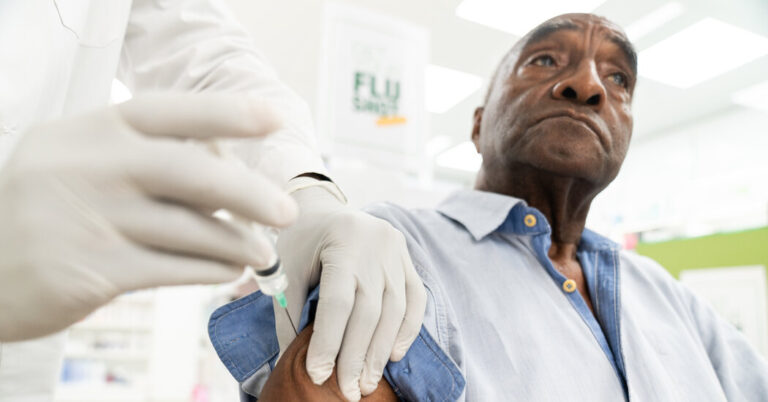New CDC Guidelines Promote Pneumococcal Vaccine for Adults
New CDC Pneumococcal Vaccine Guidelines for Adults
The healthcare landscape is ever-evolving, and so are the recommendations that keep us healthy. Just recently, the Centers for Disease Control and Prevention (CDC) introduced new, robust guidelines promoting the pneumococcal vaccine for adults. This move is significant and could very well change how we perceive vaccination in our adult lives. So, let’s dive deeper into what this means for you, your health, and why it’s essential to stay aware of these developments.
Understanding the Pneumococcal Vaccine
Before we jump into the new guidelines, let’s break down what the pneumococcal vaccine actually is. In simple terms, this vaccine helps protect against infections caused by the Streptococcus pneumoniae bacteria. These infections can range from mild to severe and can lead to conditions such as pneumonia, meningitis, and bloodstream infections.
Think of it this way: the pneumococcal vaccine acts like a shield that prepares your immune system to fend off invaders that are particularly troublesome for adults, especially those at higher risk.
Who Should Get Vaccinated?
The CDC has made clear recommendations about who should receive this vaccine. While it’s beneficial for everyone, certain groups stand to gain a lot more:
- Adults 65 years and older: Aging often weakens the immune system, making vaccinations crucial.
- Individuals with chronic health conditions: If you have diabetes, heart disease, or respiratory issues, this vaccine can be a lifesaver.
- Those with weakened immune systems: Cancer patients or transplant recipients may require this vaccine to bolster their defenses.
- Smokers: The harmful effects of smoking increase vulnerability to respiratory infections.
So, if you fit into these categories, you might want to consider rolling up your sleeve!
The New Guidelines: What You Need to Know
The CDC has made several important updates that are worthy of your attention:
1. Increased Emphasis on Vaccination
One of the primary changes is the strong emphasis on ensuring that adults—especially older adults—receive not just one but two types of pneumococcal vaccines: PCV13 (Pneumococcal Conjugate Vaccine) and PPSV23 (Pneumococcal Polysaccharide Vaccine). These vaccines work in tandem to provide a broader range of protection against different strains of pneumococcus.
2. Streamlined Administration Process
The guidelines have simplified the vaccination schedule. Instead of waiting a significant amount of time between doses, you may receive them closer together, making it easier to get fully protected without the hassle.
3. Healthcare Provider Training
The CDC is also pushing for greater training among healthcare providers. This means that your doctor should be better equipped to discuss the benefits and necessity of the pneumococcal vaccine with you, answering any burning questions you may have.
4. Public Awareness Campaigns
Expect to see more campaigns aimed at educating the public on the importance of pneumococcal vaccination. This is not just a “doctor’s order”; it affects all of us as we navigate this ever-changing health landscape together.
Why Is This Important?
Now, you might be asking yourself, “Why should I care?” Here’s why:
– Preventing Serious Illness
Pneumonia, caused by pneumococcal bacteria, can lead to hospitalizations and even death. By getting vaccinated, you’re not just protecting yourself—you’re also shielding your loved ones and your community.
– Cost-Effective Healthcare
While it may seem like an additional expense to get vaccinated, think about the costs of hospitalization and treatment for diseases that could have been preventable. Vaccination is, quite frankly, a smart investment in your health.
– Improving Public Safety
In a world where infectious diseases can spread rapidly, we need to do our part to prevent outbreaks. Higher vaccination rates contribute to herd immunity, meaning that even those who can’t be vaccinated are somewhat protected.
Safety and Side Effects
You might have heard that vaccinations can sometimes lead to side effects, and while it’s true, the benefits far outweigh the risks. Most people experience mild reactions—think soreness at the injection site, a slight fever, or fatigue. These are common signs that your immune system is gearing up to fight.
Major reactions are rare. As with any medical treatment, it’s wise to discuss potential side effects and your medical history with your healthcare provider.
Myths vs. Facts: Debunking Vaccination Misconceptions
It’s no secret that there are tons of misconceptions circulating about vaccines, especially regarding adults. Let’s clear up some common myths:
Myth: “I’m too old for vaccines; I’ll be fine without them.”
Fact: Age increases vulnerability. Vaccines help bolster immunity.
Myth: “I had pneumonia once; I’m immune now.”
Fact: Pneumonia can recur, and immunity after an infection isn’t guaranteed.
Myth: “Vaccines have too many side effects.”
Fact: Most reactions are mild and temporary, far less severe than the diseases they prevent.
Making Your Vaccination Plan
So, what should you do now? Here’s a quick roadmap:
- Talk to Your Doctor: Schedule a check-up to discuss your vaccination needs.
- Check Your Vaccination History: Knowing what vaccines you’ve received can help tailor your plan.
- Stay Informed: Keep up with CDC updates and resources.
- Spread the Word: Share this information with friends and family; education is key!
Conclusion
In conclusion, the new CDC guidelines for pneumococcal vaccination in adults pave the way for a healthier future. The move to promote and simplify access to these vaccines can save lives and improve public health overall. Just like wearing a seatbelt in your car or a helmet on your bike, vaccination is an essential tool in keeping you safe and healthy. So, don’t hesitate—get informed, get vaccinated, and take a positive step toward safeguarding your health!
FAQs
1. What is the pneumococcal vaccine?
It protects against infections caused by the Streptococcus pneumoniae bacteria, which can lead to pneumonia, meningitis, and bloodstream infections.
2. How many doses of the pneumococcal vaccine do I need?
Most adults will require both PCV13 and PPSV23 vaccines, administered at different times based on your age and health status.
3. Will I experience side effects from the vaccine?
Mild side effects may occur, such as soreness at the injection site or slight fever. Severe reactions are rare.
4. How can I schedule my pneumococcal vaccination?
Consult your healthcare provider, who can assess your vaccination history and suggest the best plan for you.
5. Are vaccines safe for older adults?
Yes, vaccines are safe and highly recommended for older adults, as they are more vulnerable to serious infections.







